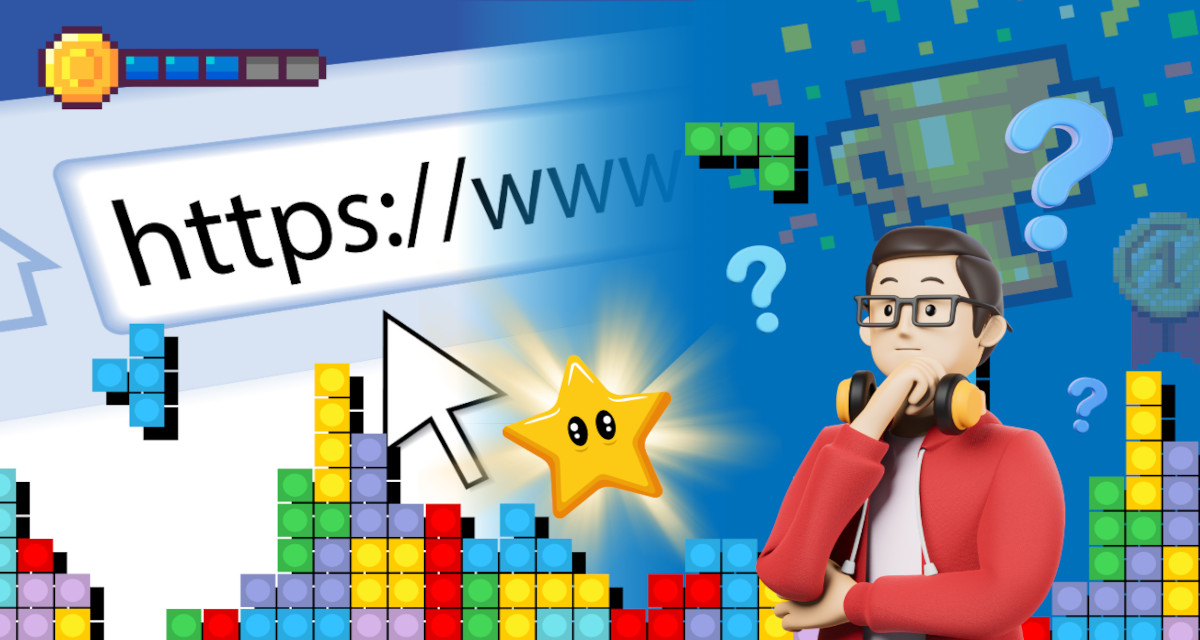 Back
Back

Exploring the Power of Browser-Based Entertainment
Read time approx: 5 minutesIn the ever-expanding landscape of digital entertainment,HTML games have emerged as a dynamic and accessible form of gaming that transcends traditional boundaries. From simple browser-based diversions to immersive experiences rivaling native applications, HTML games have undergone a remarkable evolution in this generation. Let's delve into the evolution of HTML games and explore their impact on modern gaming culture.
HTML games, initially characterized by their simplicity and accessibility, have evolved significantly over the years. What began as basic browser-based games with limited graphics and gameplay mechanics has transformed into a diverse ecosystem of gaming experiences spanning genres and platforms. Today, HTML5 technology empowers developers to create sophisticated games with stunning visuals, responsive gameplay, and cross-platform compatibility, blurring the lines between browser-based and native gaming experiences.
One of the defining features of HTML games in this generation is their accessibility. Unlike traditional video games that often require specialized hardware or software, HTML games can be played directly within web browsers on any device with internet access. This accessibility has democratized gaming, allowing players from all walks of life to enjoy immersive gaming experiences without barriers. Whether on a desktop computer, laptop, tablet, or smartphone, HTML games offer on-the-go entertainment at the click of a button.
The rise of HTML game development frameworks and engines has played a pivotal role in advancing the capabilities of browser-based gaming. Frameworks like Phaser, Construct, and Unity WebGL enable developers to create complex games with ease, leveraging the power of HTML5, CSS, and JavaScript to deliver rich and engaging experiences. These frameworks provide robust tools for game development, including physics engines, animation libraries, and multiplayer networking capabilities, empowering developers to unleash their creativity and push the boundaries of what's possible in HTML game development.
In addition to their accessibility and versatility, HTML games have also become a popular choice for indie developers and small studios looking to reach a broad audience with minimal resources. The low barrier to entry for HTML game development, coupled with the ease of distribution through web platforms and app stores, has democratized game development and fostered a vibrant indie gaming scene. From experimental art games to innovative puzzle adventures, indie developers are pushing the boundaries of creativity and storytelling in HTML games, enriching the gaming landscape with diverse and thought-provoking experiences.
Looking ahead, the future of HTML games in this generation appears promising. As technology continues to advance and web standards evolve, HTML games will likely become even more immersive, interactive, and ubiquitous. With the growing popularity of cloud gaming services and streaming platforms, HTML games have the potential to reach an even wider audience, transcending the limitations of hardware and operating systems. Whether you're a casual player looking for a quick diversion or a dedicated gamer seeking immersive experiences on the go, HTML games offer a world of entertainment at your fingertips, shaping the future of gaming in this generation and beyond.

